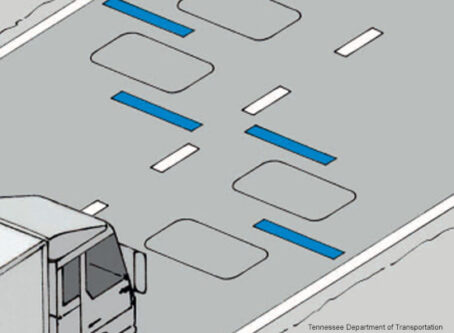Tennessee Tech president pulls back emissions study until peer review is conducted
The president of Tennessee Tech has asked the Environmental Protection Agency to withhold any use or reference of the university’s study on the environmental impact of glider kits until a peer review is conducted.
In letters dated Feb. 19 to EPA Administrator Scott Pruitt and Rep. Diane Black (R-Tenn.), Tennessee Tech President Philip B. Oldham said that “knowledgeable experts within the university have questioned the methodology and accuracy of the report. Therefore, Tennessee Tech University is actively pursuing a peer review of the report and supporting data to assure its validity. The university also is investigating an allegation of research conduct related to the study.”
Oldham’s letters are in reference to Tennessee Tech’s recent study that concluded that glider emissions were at or below the levels of new trucks. Last week, a story from The New York Times questioned the university’s relationship with Crossville, Tenn.-based Fitzgerald Glider Kits, which funded the study.
In November 2017, the EPA issued a proposed rule to repeal emission requirements for glider vehicles, glider engines, and glider kits. The EPA said the proposed repeal was based on an interpretation of the Clean Air Act under which “glider kits would not be treated as incomplete new motor vehicles.” Under the proposed interpretation, EPA would lack authority to regulate glider vehicles, glider engines, and glider kits.
The proposed rule did cite that the Tennessee Tech study was mentioned in a petition for reconsideration from representatives of the glider kit industry. However, the study is not included in the EPA’s “Basis for the Proposed Repeal” section.
“EPA is proposing that the statutory interpretations on which the Phase 2 rule predicated its regulation of glider vehicles, glider engines, and glider kits were incorrect,” the proposed rule said.
“EPA proposes an interpretation of the relevant language of the CAA under which glider vehicles are excluded from the statutory term ‘new motor vehicles’ and glider engines are excluded from the statutory term ‘new motor vehicle engines.’ Consistent with this interpretation of the scope of ‘new motor vehicle,’ EPA is further proposing that it has no authority to treat glider kits as ‘incomplete’ new motor vehicles.”
Oldham said he anticipates a “timely and thorough review” of the university study.









